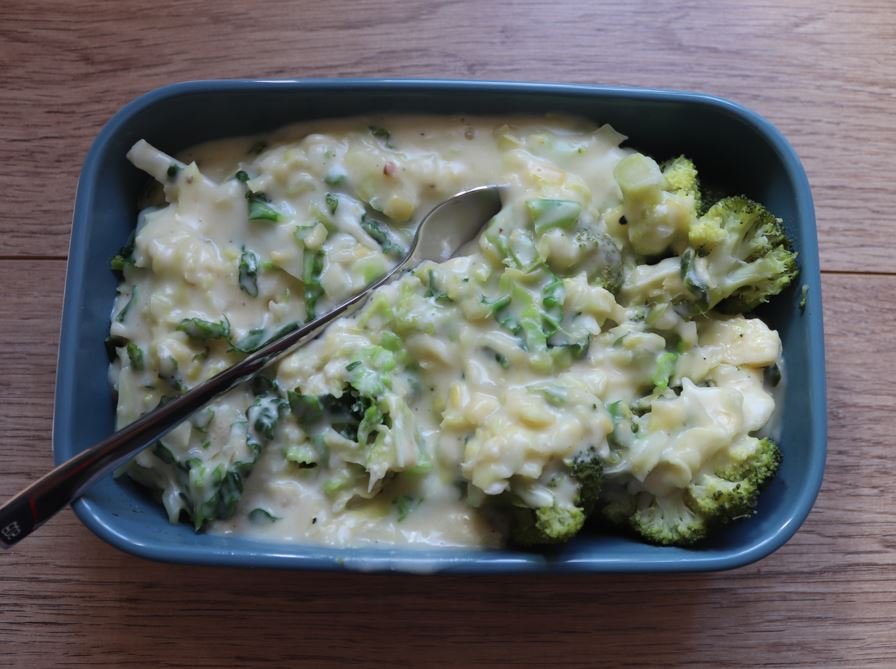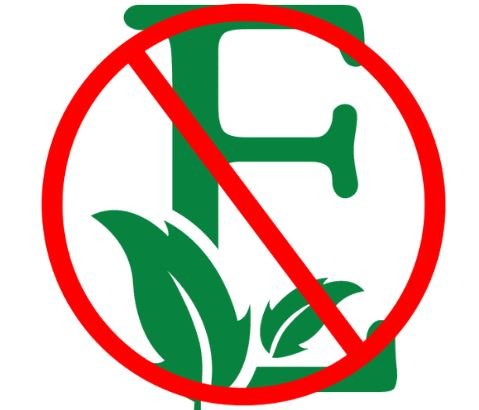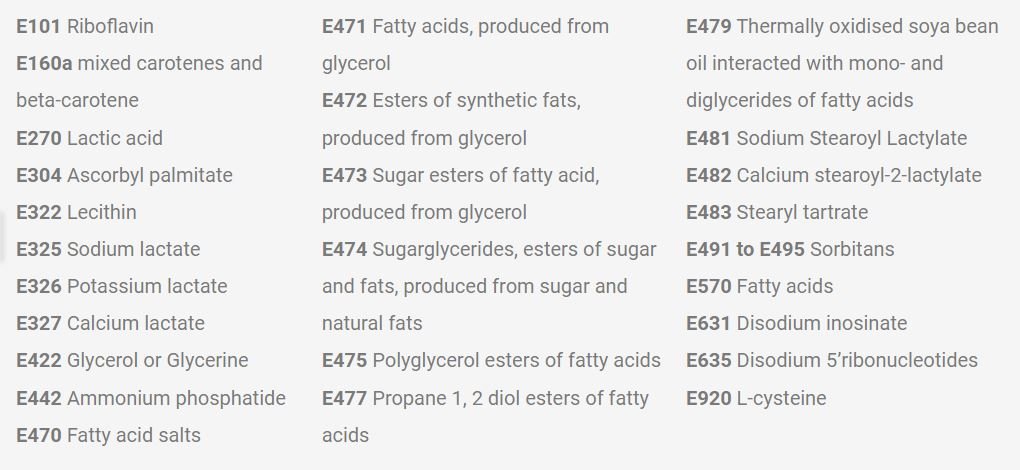Non-Vegan E Numbers – What E Numbers Should Vegans Avoid?

Last updated on December 3rd, 2023
When transitioning to a vegan diet it can be easy to recognise the obvious ingredients to steer clear of like milk, eggs, and chicken…but what E numbers should vegans avoid?
If you’re wondering which E numbers are not vegan? then keep reading…
There are some E numbers that are definitely not vegan. However, just to make things more difficult, there are some E numbers that might or might not be vegan, depending on how they are made.
Certain E numbers are never vegan, so let’s start with them.
E Numbers that are NOT Suitable for Vegans:
- E120
- E904
- E542
- E913
- E966
- E901
- E1105
What are E Numbers?
Well, the ‘E’ in E numbers stands for Europe. So, this means they’ve been approved for use in the European Union following safety tests.
And the numbers are the codes they use to identify different food additives.
Some of these are natural and some are artificial. These food additives are ingredients added to food and other products to enhance the flavour, colour and texture or to stop food from spoiling.
Why are E Numbers Bad?
People sometimes avoid E numbers because eating foods with too many additives can be unhealthy.
There are even ongoing debates in the scientific community about possible side effects and illnesses that have a connection to E numbers. Take a look at what Made for Mums says about E numbers.
Those following a vegan diet avoid certain E numbers because many of them, not all, are not suitable for vegans. But it’s often not very clear when looking at the ingredients which are vegan-friendly and which are not.
It’s actually shocking how many tiny animal ingredients can be added here, there and everywhere.
So, today let’s tackle E numbers, these are the code names for food additives and some of them come from animal products.
Firstly I should explain, that some E numbers are never suitable for vegans but others might have ingredients derived from an animal source but sometimes they might not.

Here are 7 Non-Vegan E Numbers:
1. E120 is a non-vegan E number, it’s a natural dye called carmine or cochineal. It has this name because it comes from the Cochineal bugs.
It’s used to give food and drink a red or pink colour. You’ll also find it in some make-up such as lipstick. Beetroot is a common E120 vegan alternative.
2. E542 also isn’t suitable for vegans, this is because it’s bone phosphate made by crushing pig and cow bones.
It’s an emulsifier to stop food and health & beauty products from clumping together. It’s often found in toothpaste.
3. E901 is an E number that vegans should avoid because it’s beeswax and is taken from the beehive of honey bees.
It’s a glazing agent found in things such as chewing gum, jellies and candles.
4. E904 is shellac and it comes from female lac bugs. Up until recently the Vegetarian Society considered this acceptable but the rules have just changed, it does come from an animal after all.
It is used for coating pills, candies, nail varnish and furniture paint.
5. E913 is another non-vegan E number, it’s lanolin and it’s a wax that comes from sheep.
Sheep excrete it from their skin and then it’s taken from their wool. It’s often found in chewing gum and is sometimes just listed as a gum base.
6. E966 is not suitable for vegans, it’s lactitol and often used as an emulsifier, sweetener or thickener. It’s made from lactose which is the sugar found in milk and can replace sugar in low-calorie foods.
7. E1105 is last on the list of non-vegan E numbers, it’s a lysozyme, an enzyme derived from eggs white. This is a preservative in foods such as ready meals to stop the growth of bacteria.

There’s More
So, they are the E numbers vegans always need to avoid, but I’m sorry, there’s more!
I’ve got another list for you and this one is a bit longer.
It’s a list of other E numbers that may or may not be suitable for vegans so perhaps even more annoying than the list above.
As I’ve said this is because there’s more than one way to produce these additives. Sometimes it will involve animal products sometimes it won’t.
And most of the time it’s impossible to know if these E numbers use a plant-based method to be produced or not.
So, you need to hope the packaging says suitable for vegans or you can ask the manufacturers and see if you can get an answer – good luck with that!
E Numbers that Vegans Should Probably Avoid:

So, now you know what E numbers vegans should avoid
But there is some good news, we are seeing more and more products changing slightly to swap the non-vegan E numbers for vegan alternatives because the vegan population is growing rapidly.
Keeping up to date with everything that is and isn’t vegan can be a challenge. Right? So here are a few posts that might help you out:
- Is beer vegan? Yes, sometimes. So, what beers are vegan?
- Why is Vegan Wine Different? Wine is Wine?
- Why Vegans Don’t Eat Eggs. Aren’t they a natural part of a hen’s life?
Meet the Author

Meet Sinead O’Carroll: Vegan explorer, sustainability advocate and the founder of The Wondering Wandering Vegan. Embracing veganism since 2018 and vegetarianism since 2005, Sinead is armed with a Vegan Health, Nutrition and Lifestyle qualification, and is on a mission to share her passion for cruelty-free living.
With a taste for adventure and a heart for eco-conscious choices, she’s here to prove that vegans never miss out on flavour, fun or style. Join her in enjoying the delights of a vegan-friendly world! 🌱✈️🌍
Want to know more? Check out Sinead’s About page here.
Follow me on Instagram to see all the delicious vegan food I find, the vegan and cruelty-free products I use and what I get up to as a travelling vegan.
